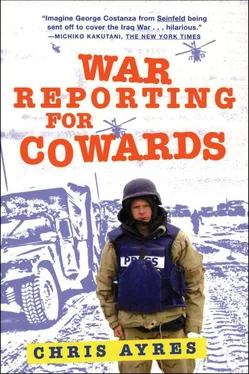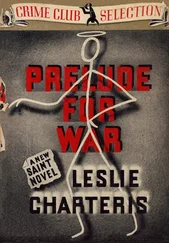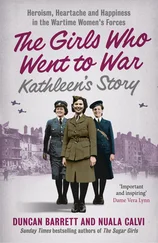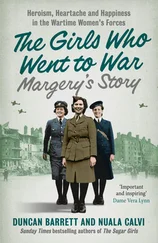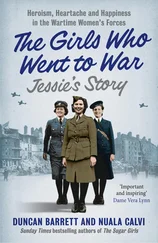Крис Айрс - War Reporting for Cowards
Здесь есть возможность читать онлайн «Крис Айрс - War Reporting for Cowards» весь текст электронной книги совершенно бесплатно (целиком полную версию без сокращений). В некоторых случаях можно слушать аудио, скачать через торрент в формате fb2 и присутствует краткое содержание. Город: New York, Год выпуска: 2005, ISBN: 2005, Издательство: Grove Press, Жанр: Биографии и Мемуары, Юмористические книги, nonf_military, на английском языке. Описание произведения, (предисловие) а так же отзывы посетителей доступны на портале библиотеки ЛибКат.
- Название:War Reporting for Cowards
- Автор:
- Издательство:Grove Press
- Жанр:
- Год:2005
- Город:New York
- ISBN:978-1-5558-4594-0
- Рейтинг книги:5 / 5. Голосов: 1
-
Избранное:Добавить в избранное
- Отзывы:
-
Ваша оценка:
- 100
- 1
- 2
- 3
- 4
- 5
War Reporting for Cowards: краткое содержание, описание и аннотация
Предлагаем к чтению аннотацию, описание, краткое содержание или предисловие (зависит от того, что написал сам автор книги «War Reporting for Cowards»). Если вы не нашли необходимую информацию о книге — напишите в комментариях, мы постараемся отыскать её.
War Reporting for Cowards — читать онлайн бесплатно полную книгу (весь текст) целиком
Ниже представлен текст книги, разбитый по страницам. Система сохранения места последней прочитанной страницы, позволяет с удобством читать онлайн бесплатно книгу «War Reporting for Cowards», без необходимости каждый раз заново искать на чём Вы остановились. Поставьте закладку, и сможете в любой момент перейти на страницу, на которой закончили чтение.
Интервал:
Закладка:
Eventually, the week before we were due to graduate, Cole came clean and told us what our final lesson would be. Clearly it would be a momentous occasion—the curtain call of The Robert Cole Show to which we had become so addicted during our time at City. “So, you ’orrible lot,” he announced one Friday at lunchtime in his best faux Dickensian sneer, “my effort to educate you is, thankfully, about to come to an end.” We listened in blank silence, notebooks and pens quivering with anticipation. “That means you’re ready for the final tutorial .”
Cole crushed a piece of chalk into the blackboard, then dragged it. After his loopy handiwork was complete, he used his umbrella to point to the white letters he had formed. He cleared his throat. “In this, your last lesson, the date and location of which you already know, you will learn the primary information-gathering technique of the successful business reporter,” he said. “After this, you will be able to go to your future newspaper employers with confidence—knowing that you can cajole and bully a story out of even the most hardened, miserable bastard of a business executive. Chaps, you’re finally ready. See you down the pub.”
With that, he picked up his briefcase and left.
We stared at the dusty letters Cole had just drawn on the blackboard. They spelled out the words, The Lunch Tutorial.
Cole raised his pint glass and ignited a Silk Cut. This was it—the moment we had been waiting for. “Let’s begin,” said Cole. We leaned in over the table, desperate to hear his wisdom over the din of a Kylie track.
The business lunch, Cole told us, was the key to financial journalism. The best tables at London’s best restaurants were our workstations. The waiters and sommeliers were our technicians, helping us work on our raw material—our billionaire dining companions—until we had extracted the precious stones of information within. We could spend as long as we wanted polishing those stones back in the office, but it was at the lunch table that we had to dig for them. “Never underestimate how much someone will tell you while stuffing a salmon blini into their face,” said Cole. “Especially after they’ve drained a bottle of 1990 Gevrey-Chambertin.”
I was nervous, however. Since the age of eighteen I had been suffering from panic attacks, the main symptom of which was a powerful tide of nausea. I spent one entire term at college making jackhammer convulsions into the philosophy department’s toilet bowl. What if that happened at lunch?
“Just follow these simple rules, chaps,” Cole told the table. “You sit down and make small talk. Discuss the weather, the traffic, the bloody route you took in the cab; whatever . Order the starter. Make more small talk. Talk about the news, the book you’re reading, anything you want. Move onto the serious stuff over the main course.” Cole extinguished his Silk Cut using an empty wineglass. Then a thought struck him: “Oh, and if you’re having lunch with anyone in public relations, always order the most expensive thing on the menu, because PRs always pay . For your guidance, anything lobster-related is generally at the top of the price list. Oh, and don’t ever order skate. Too many bones. Impossible to eat. I nearly choked to death on one of those fuckers once. And no one wants to give a choking man a story.”
And that was it: lesson over. Thus educated, I made an appointment with Lindsay Cook at The Times . She didn’t give me a job, of course. But she did the next best thing: She invited me in as an intern.
4
“YOU HAVEN’T GOT A BLOODY HOPE IN HERE…”

Before we move any further toward the blood and the horror (it won’t be long now), I should probably tell you what happened on my first day as an intern. My plan was to stride through the door to the business section as confidently as possible and proceed immediately to Cook’s office, in the hope that her familiar face would help calm me down. After tripping over the step, however, and launching myself into an undignified recovery dance in front of a row of grimacing subeditors, I noticed that the door to Cook’s office was shut. Damn .
When I looked again, I realized why the subeditors were looking so downcast. Behind the blinds of Cook’s office, I could see the flickering outline of the business editor, a tissue pressed to her face. With her other hand she was shakily transferring the contents of her desk into a brown cardboard box.
To this day I have no idea what happened. But Cook, my best Fleet Street contact and perhaps my only chance of getting a job on a national newspaper, was gone. As I trudged downstairs to the office vending machine, wondering whether or not to go home, I almost collided with Robert Miller, The Times ’s banking correspondent. I didn’t know it at the time, but Miller, a dapper city gent with a street-brawler’s build and a rhinoceros-hide complexion, was one of Cook’s closest office allies. “Still want to be a journalist, son?” he sneered, brushing past me.
In fact, I did. Having blown my prize money on tuition fees and paid for more than a year’s worth of living expenses with the kind of high-interest debt that would make a South American central bank nervous, I had no Plan B. The only free accommodation available to me was four hundred miles north, in Wooler, but I didn’t much fancy a return to Sheepsville. I had wanted to be a journalist because it seemed like the closest thing to being a rock star without having to be either good-looking or talented. As a petulant, hormone-saturated teenager living in Wooler, the only thing that kept me sane was my family’s daily delivery of The Guardian . It was the only proof I had that there were other people in Britain who read the same books, watched the same films, and bought the same records that I did. I might not have managed to get an internship gig at The Guardian ’s arts desk (a task I considered impossible), but I had come close with The Times —albeit via the Most Boring Section. It seemed too depressing to give up now, having come so near to career nirvana.
So I spent the rest of the day just hanging around. I didn’t have a desk, so I shuffled my feet by the newspaper rack; drank frothy, muddy tea from the vending machine; and sat quietly beside the shelves of index cards that served as a kind of pre-Internet database. I didn’t ask anyone’s permission to stay, or to go, assuming that if they wanted to get rid of me, they would tell me. Every hour or so I would go downstairs to see Glen, who was at that point working on the foreign desk and designing an elaborate graphic of an exploding volcano on Montserrat Island. With his Hugh Grant flop, brilliant white shirt, Greek island tan, and posh drawl, Glen was a Times natural. I, on the other hand, had suffered a catastrophic breakout of stress-acne, and my pale skin seemed to have become paler from shock. Anyone in the newsroom could have identified me as “the intern kid” from four hundred feet away. If Glen hadn’t been downstairs, I’m not sure I would have had the guts to stay all day.
Eventually, at 6:00 P.M., I left The Times ’s office—then located in a windowless former rum warehouse inside the News International printing compound in Wapping—and began the lonely, miserable trek to the Tower Hill tube station. From there I made three connections until I ended up back at my tiny, disgusting apartment on Caledonian Road. The next day I turned up for another unwanted, unpaid shift. The day after that I did the same again.
Finally, on Thursday, I was busted.
Читать дальшеИнтервал:
Закладка:
Похожие книги на «War Reporting for Cowards»
Представляем Вашему вниманию похожие книги на «War Reporting for Cowards» списком для выбора. Мы отобрали схожую по названию и смыслу литературу в надежде предоставить читателям больше вариантов отыскать новые, интересные, ещё непрочитанные произведения.
Обсуждение, отзывы о книге «War Reporting for Cowards» и просто собственные мнения читателей. Оставьте ваши комментарии, напишите, что Вы думаете о произведении, его смысле или главных героях. Укажите что конкретно понравилось, а что нет, и почему Вы так считаете.
